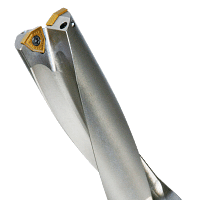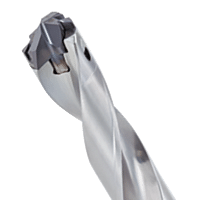Drilling tools
At the heart of every machine shop, drilling tools are an essential component to ensure precision, efficiency and quality in daily operations.
Drilling tools are specific tools designed to create holes in various materials, such as metals, wood and plastics. Among the most common are drill bits, but there are also other specialised accessories that improve the precision and quality of drilling.
Drilling tools are used to create holes of various sizes and depths, which are essential for the assembly, machining and repair of mechanical components. In a machine shop, the ability to drill precise and clean holes is crucial to ensure the proper functioning of machinery and devices.
Using drilling tools requires skill and attention to detail. Here are some practical tips to achieve the best results:
- Choosing the Right Bit: For each material, there is a specific bit. Bits for metal are different from those for wood or plastic. Using the right drill bit reduces wear and improves accuracy.
- Setting the Speed: Each material has an optimal drilling speed. Setting the correct speed on the drill is essential to avoid overheating and drill bit breakage.
- Lubrication: Using metal-specific lubricants when drilling reduces friction and prolongs tool life.
- Mechanical Drilling Techniques: Applying the right pressure and maintaining correct posture while drilling are key factors in drilling accurate and safe holes.
The use of high-quality drilling tools offers numerous advantages:
- Precision and Accuracy: Well-designed tools guarantee precise holes, which are essential for the correct assembly of components.
- Operational Efficiency: Quality tools reduce machining time and improve productivity.
- Durability: Robust tools resist wear and last longer, reducing replacement costs.
- Safety: Appropriate tools reduce the risk of accidents, protecting operators.
Answers to Frequently Asked Questions
What are the best metal drilling tools?
Tungsten carbide and high-speed steel (HSS) drills are among the best for drilling metals due to their hardness and strength.
How to choose professional drill bits?
Evaluate the material of the drill bit, the coating (e.g. titanium nitride), and the type of drill bit (spiral, stepped, etc.) according to the material to be drilled and the type of work.
In conclusion, drilling tools are essential tools in machine shops. Choosing the right tools and using them correctly can make the difference between a mediocre job and a high-quality one. With the right equipment and techniques, perfect holes can be obtained, improving operational efficiency and the overall quality of work.




